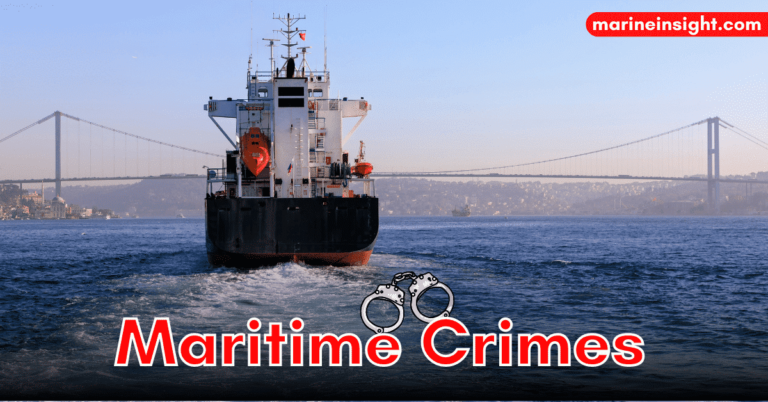Illegal, Unreported, and Unregulated (IUU) Fishing
This type of fishing is a major concern for marine conservation and environmental protection. IUU fishing involves fishing activities conducted in violation of national laws and regulations or international agreements. It poses a threat to marine ecosystems, biodiversity, and sustainable fishing practices. IUU fishing is often associated with overfishing, depletion of fish stocks, and harm to marine habitats.
The impact of IUU fishing is significant, affecting the livelihoods of coastal communities, food security, and the economy. It also undermines efforts to manage and conserve marine resources for future generations. International cooperation and enforcement of regulations are essential to combat IUU fishing and promote sustainable fisheries management.
5. Environmental Crimes
Environmental crimes at sea include activities such as illegal dumping of waste, pollution from ships, destruction of marine habitats, and illegal trade in endangered species. These crimes have a detrimental impact on marine ecosystems, wildlife, and human health. They also contribute to climate change and ocean acidification.
Efforts to combat environmental crimes at sea involve international agreements, regulations, monitoring, and enforcement measures. Cooperation between governments, industries, and environmental organizations is crucial to protect the marine environment and promote sustainable development.
6. Maritime Terrorism
Maritime terrorism involves acts of violence, sabotage, or coercion committed for political, ideological, or religious reasons. These acts pose a threat to maritime security, international trade, and global stability. Maritime terrorist attacks can target ships, ports, offshore installations, and coastal infrastructure, disrupting maritime activities and causing economic losses.
Preventing maritime terrorism requires cooperation between governments, intelligence agencies, law enforcement, and the maritime industry. Measures such as maritime security regulations, surveillance technologies, and counter-terrorism strategies are essential to safeguard maritime assets and ensure safe navigation.
Illegal, Unreported, and Unregulated Fishing (IUU Fishing)
IUU fishing is conducted by ships that operate without proper licences and violate national and international regulations regarding fishing. It occurs across maritime zones, both in international waters and within national jurisdictions, leading to overfishing, depletion of marine ecosystems and threatening food security.
Per the Food and Agriculture Organization (FAO), around 26 million tonnes of fish are illegally caught in the world, which accounts for over 15% of global fishing. Nearly 30% of illegally caught fish comes from overfishing which threatens the fish populations and the livelihood of traditional coastal communities.
5. Unauthorised Entry
If a ship has to enter another country’s maritime border, the vessel must have permission from the government of that country. Sailing in the nation’s waters without permission is a crime and is punishable in all nations. Criminal groups might use this for their benefit and target a vulnerable ship while navigating their way to a destination or while anchored at sea.
6. Marine Pollution
Marine pollution involves the dumping of pollutants, waste and oil by ships into the sea. It is a serious maritime crime which causes ecological damage, and economic loss and impacts human health.
Marine pollution is of various kinds such as oil pollution, plastic and solid waste pollution, pollution from toxic waste, pollution due to ballast water and introduction of invasive species to new environments and sewage and nutrient pollution.
A few international conventions and regulations to deal with marine pollution include MARPOL, the London Convention, the Basel Convention and UNCLOS.
7. Smuggling of Arms and Weapons
Smuggling weapons in ships is a serious crime that involves illegal transportation of firearms, explosives and ammunition via commercial and private ships. This threatens international security, and peace and poses risks for safety and governance, especially in regions experiencing civil wars, terrorism or political upheavals.
A few hotspots of smuggling include the Horn of Africa, South and Southeast Asia, Eastern Mediterranean and North Africa, the Caribbean and Central America.
A few international conventions designed to combat smuggling include the United Nations Arms Trade Treaty, UN Security Council Resolutions etc.
8. Illegal Salvage Operations
Illegal salvage means recovering wrecked ships or valuable materials from the sea without proper legal rights or coordination with the authorities. These actions violate laws regarding environmental protection, maritime safety and property.
Laws about salvage require salvors to obtain permission from the flag state of the shipwreck and also affected parties like insurers, owners or authorities but in illegal operations, individuals or criminal groups exploit shipwrecks without permission using unlicensed ships and equipment using risky methods.
9. Tax evasion
Cases of ship owners trying to evade taxes through false documentation or incorrect representation of cargo material have been increasing rapidly, posing a threat to maritime security.
10. Stowaways
Stowaways are individuals who board a ship without the consent or knowledge of the ship’s captain and crew i.e. illegally. They often hide on the ship, to prevent being discovered so they can travel to another country illegally. While they break immigration laws, they are not exploited as in the case of human trafficking.
Nonetheless, they pose safety risks, often hiding in dangerous places like cargo holds, on tops of containers or in concealed places. They often undertake such arduous journeys to escape from the harsh conditions in their home country which might be witnessing a war, conflict or political upheaval. Hence, they try to go to another country to have a chance at a better life.
Ways to Improve Maritime Security
The above-mentioned crimes pose a threat to maritime security. Despite all the efforts, maritime security gets compromised when the crimes can take a dangerous turn. The lack of a coherent system and a lack of cooperation between countries is a reason why these crimes still look the marine industry in the face. Some ways through which marine crimes can be combated include:
- Better surveillance and international cooperation
- Use of satellite tracking
- Tighter norms and regulations
- More efficient monitoring of ships and ports
- Better quarantine services
It is important that countries realize the loopholes in their security systems and find ways to thwart them.
You might also like to read-
Can you please rewrite the content for me?

